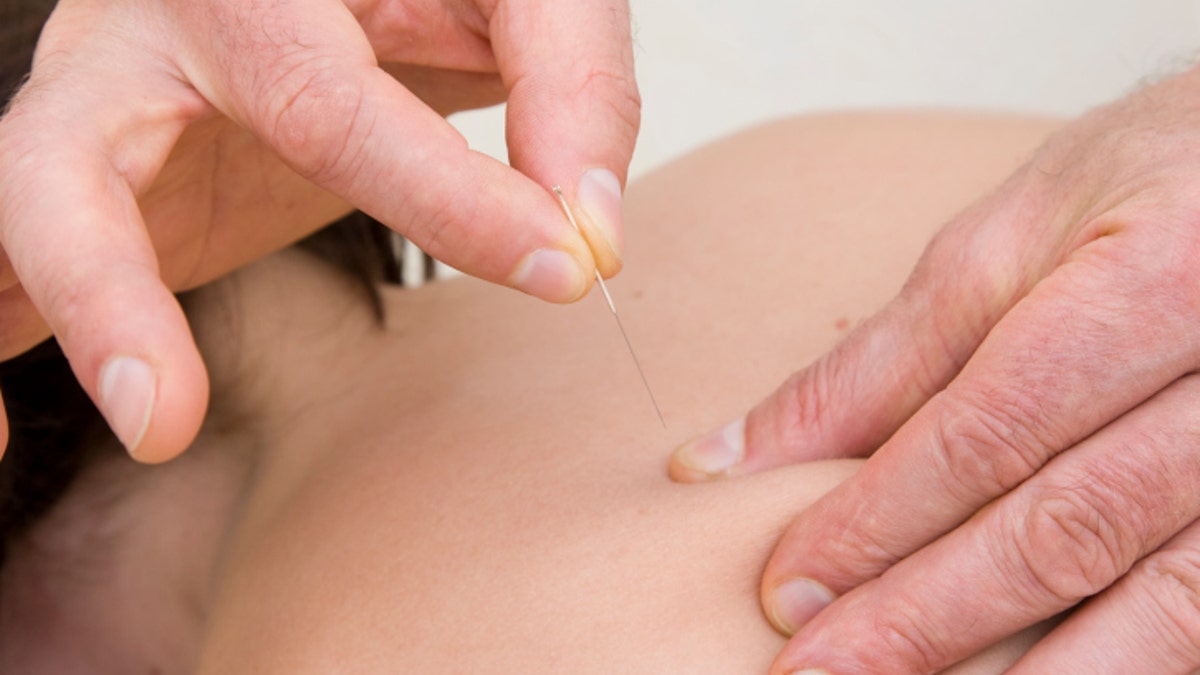
acupuncture
Are we an over-medicated nation?
Let’s look at the numbers: Americans spent more than $300 billion on prescription drugs last year; nearly half of all adults have taken at least one prescription drug in the last month; nearly a third regularly use two or more; and women are more likely than men to use prescription drugs, according to the CDC.
Drugs can undoubtedly save lives, but our penchant for prescriptions can sometimes mean treating or masking symptoms—without fixing the root cause of the health issue.
“There are natural therapies available that are much safer, often more effective, and cost much less,” says Dr. Jacob Teitelbaum, author of the book Real Cause, Real Cure. "Of course, you should never start, change, or stop taking medications without first talking to your doctor.”
Check out the top 10 most prescribed drugs in the United States, then read on for our experts’ suggestions on the best natural alternatives to treat—and prevent—illness.
#1 Most Prescribed Drug: Hydrocodone/acetaminophen, such as Vicodin, for pain
Key Statistics: Doctors wrote more than 131 million prescriptions for pain meds last year, for everything from dental surgeries to sports injuries.
Natural Remedy: Try Some Hands-On Help. Pain can be debilitating, sure, but pain meds can be addictive—and ingredients such as acetaminophen may also damage your liver in the long term. Rather than relying on a pill that masks your aches, try to tackle the trigger by seeing a professional with a healing touch. “Drugs will never be the answer to solving pain because pills treat only the symptoms and not the underlying cause,” says Sungwon D. Yoo, D.C., M.S.A.O.M., L.Ac, a chiropractor and acupuncturist who uses Traditional Chinese Medicine in his private practice, Healing Point, in Fayetteville, N.Y. “Pain can be caused by an interference in our body’s nervous system, so manipulating the body’s main nervous system channel to the brain—the spine—can help remedy aches.”
Science supports the claims: People with lower back pain who received just four chiropractic treatment sessions in two weeks showed greater improvement in disability and pain compared to those receiving usual care, according to the Archives of Physical Medicine and Rehabilitation.
Use Acupuncture to Treat Health Problems
#2 Most Prescribed Drug: Statins, such as simvastatin (Zocor) or atorvastatin (Lipitor), for high cholesterol
Key Statistics: Statins prevent your liver from making cholesterol by blocking a necessary enzyme. Pharmacies dole out more than 45 million prescriptions a year for Lipitor alone.
Natural Remedy: Change Your Diet. Certain foods—such as oats, garlic, olive oil, and red wine—can help reduce inflammation in your body and have been proven to lower “bad” LDL cholesterol or raise “good” HDL cholesterol naturally. The secret to garlic’s heart-protecting powers is an amino acid called allicin, which is released when garlic is crushed. Allicin protects the heart by keeping cholesterol from sticking to artery walls. And studies show that red wine may raise HDL, or “good” cholesterol, and thin blood to keep artery-blocking clots from forming. In fact, moderate drinking may slash your risk of heart disease by up to 40 percent, according to the Harvard School of Public Health.
Here is another tasty heart-smart move: Eating a small square of dark chocolate three to four times a week may be 25 times as effective as taking statins for preventing heart disease, says Teitelbaum.
#3 Most Prescribed Drug: Lisinopril (Zestril) or amlodipine besylate (Norvasc) to treat high blood pressure
Key Statistics: The number of blood pressure prescriptions filled every year tops 144 million.
Natural Remedy: Up Your Intake of These Supplements. Prescription meds can play an important role in lowering blood pressure, but with the help of your doctor and the right supplements, you may be able to cut back—or eventually stop taking—prescription drugs. “In my experience, the best approach is to use medications to bring your blood pressure under control initially, and then add natural therapies that can help you wean off your prescription,” says Teitelbaum.
Increasing your potassium (500 mg a day—present in a banana or a cup of tomato juice or coconut water) and magnesium (200 mg a day) are especially effective at lowering blood pressure in most people. If you have especially high blood pressure, talk to your doctor about also taking 200 milligrams a day of Coenzyme Q10, an antioxidant that might help lower BP by dilating blood vessels.
“Coenzyme Q10 deficiency is especially common in people taking cholesterol-lowering medications, and I have seen it lower blood pressure as much as 30 to 40 points in some severe cases,” says Teitelbaum.
#4 Most Prescribed Drug: Levothyroxine sodium (Synthroid) for hypothyroid
Key Statistics: Hypothyroidism is most common in women over age 50. In fact, as much as 10% of women over 50 will have at least mild hypothyroidism. More than 70 million prescriptions are given for Synthroid annually.
Natural Remedy: Check for Mineral Deficiencies. Low thyroid problems might happen because the thyroid is being attacked by your own immune system, but it can also occurs from mineral deficiencies such as iodine, iron, or selenium. Talk to your doctor about whether taking mineral supplements before going on meds might be for you, or whether natural thyroid glandular supplements, such as BMR Complex by Integrative Therapeutics, might be helpful.
“The thyroid glandular [supplement] supplies the raw materials needed to optimize thyroid function, so taking one or two capsules three times daily between meals could start the process of kicking your thyroid back into gear within a month,” says Dr. Teitelbaum. Remember, never start or stop taking a medication without consulting your doctor: If you’re at risk for heart disease, taking thyroid supplements could trigger heart palpitations or even a heart attack or angina, just as strenuous exercise could.








































